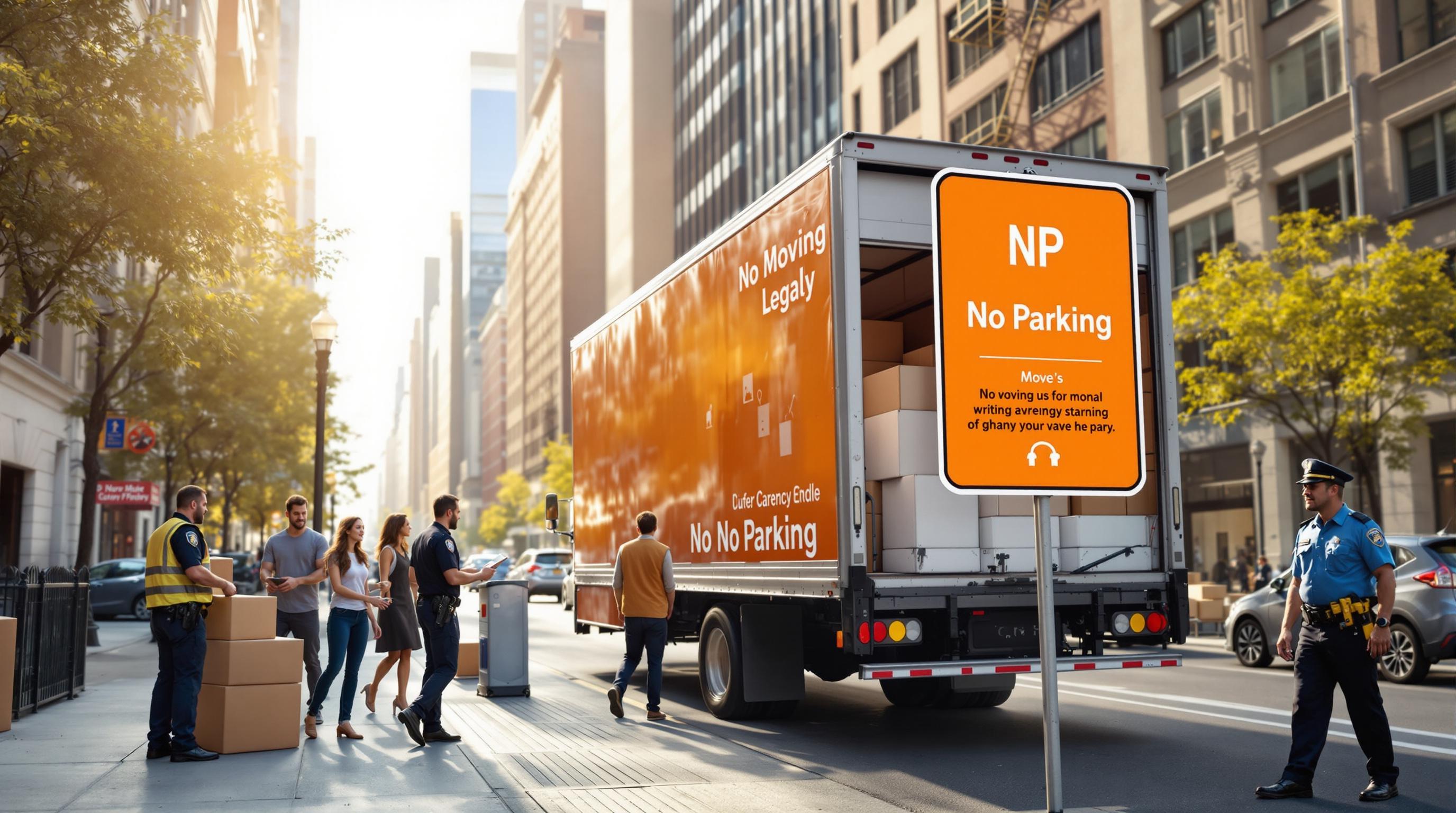
NYC Moving Permits: What to Know
NYC Moving Permits: What to Know
Moving in NYC? You’ll need permits to avoid fines and ensure a smooth process. Here’s a quick summary of what’s required:
- Street Parking Permits: Reserve space for moving trucks from the NYC Department of Transportation.
- No-Parking Zone Permits: Temporary access to restricted zones for loading/unloading.
- Building Permits: Check with your building for move-in/out rules, elevator reservations, and insurance requirements.
Key Steps:
- Gather documents like ID, vehicle info, proof of move, and insurance.
- Apply early (2–3 weeks before moving).
- Follow NYC parking, traffic, and noise rules.
Need help? Professional movers like My Piece of Cake Move can handle permits and building coordination for you.
Start early, plan ahead, and ensure all permits are in place for a hassle-free NYC move.
NYC Moving Permits and Regulations
Required Moving Permits in NYC
If you're planning a move in NYC, you'll need certain permits to keep things legal and avoid any hiccups. Here's what you should know about the key permits:
Street Parking Permits
To secure a spot for your moving truck on city streets, you'll need a street parking permit from the NYC Department of Transportation. This permit lets you legally use specific parking spaces during your move. Be sure to apply a few days in advance and have the proper signage displayed.
No-Parking Zone Permits
Moving in areas with restricted parking? A no-parking zone permit gives you temporary permission to load and unload in these spaces. Submit your application several days before your move to ensure it's processed in time.
Building Move-In Permits
Many NYC residential buildings have their own rules for move-ins, including permits. These often involve providing insurance documents, reserving elevators, or following other building-specific guidelines. Reach out to your building management early to confirm what’s needed.
Permit Application Steps
Getting NYC moving permits takes some planning. Here's what you need to know to make the process smoother.
Required Documents
To apply for NYC moving permits, have these documents ready:
- Proof of Identity: A valid government-issued photo ID.
- Vehicle Information: Registration and insurance details for your moving truck.
- Moving Details: Written confirmation of your moving date and time.
- Property Documents:
- For residential moves: A lease agreement or proof of ownership.
- For commercial moves: A business license or other relevant property paperwork.
- Insurance Certificate: Proof of liability coverage.
- Building Approval: Written consent from building management, if required.
Make sure all documents are up-to-date and align with your application details. It's a good idea to keep digital copies for your records. Once you've gathered everything, check the fees and processing times to stay on track.
Fees and Processing Times
There’s no official information on specific fees or wait times, as these can vary. To avoid issues, apply well before your moving date, especially during peak moving seasons. If you're hiring a moving company, ask if they handle permits - this could save you time and effort.
sbb-itb-72294f1
NYC Moving Rules
Follow these NYC moving rules to steer clear of fines and delays:
Parking and Traffic Rules
Stick to designated commercial loading zones during posted hours. Avoid double parking or blocking fire hydrants, crosswalks, and bus stops. These rules help keep traffic flowing and ensure safety. Also, be aware of specific moving hours and noise restrictions in your area to stay compliant.
Moving Hours and Noise Rules
Check local regulations for permitted moving hours and noise limits. Keep in mind that some buildings may have their own policies. Review your lease or building guidelines to understand any extra restrictions that could apply.
Truck Size Limits
Truck size and weight restrictions differ by area. Manhattan, for example, has stricter rules than other boroughs. Certain streets, particularly in historic districts or areas with structural concerns, may have additional limitations. If your moving truck is larger or heavier than standard, you’ll need to get a special permit from the Department of Transportation. Following these guidelines will help make your NYC move smoother.
Getting Your Permits Faster
If you're tackling the permit application process, these tips can help you speed things up for your NYC moving permits.
Start Early
Submit your application as soon as you finalize your moving date. This ensures you have a better chance of locking in your preferred time slot and avoids any last-minute hiccups.
Want to save even more time? Consider bringing in professional help.
Work with My Piece of Cake Move

Using a service like My Piece of Cake Move can make the whole process easier. They handle the permit paperwork, communicate with your building management, and ensure everything is done correctly.
Work with Your Building
Get in touch with your building management early on. Here’s what to check:
- Review any specific moving rules your building has
- Reserve service elevators if you'll need them
- Confirm when you're allowed to move in or out
- Get any extra permits or approvals your building requires
Taking care of these details ahead of time will help your moving day go as smoothly as possible.
Summary
Planning a move in NYC means navigating key permit requirements and meeting deadlines. There are three main permits to consider: street parking permits for moving trucks, no-parking zone permits for restricted areas, and building move-in permits. To avoid last-minute stress, make sure to apply at least 2–3 weeks in advance to lock in your preferred moving date.
Teaming up with professional movers like My Piece of Cake Move can simplify the process. They are familiar with NYC's specific rules and can handle the paperwork while coordinating with your building management.
For a smooth move, start early by communicating with your building management about their requirements, reserving elevators, and understanding move-in protocols. At the same time, ensure you follow NYC's parking, traffic, and noise regulations to avoid any hiccups.